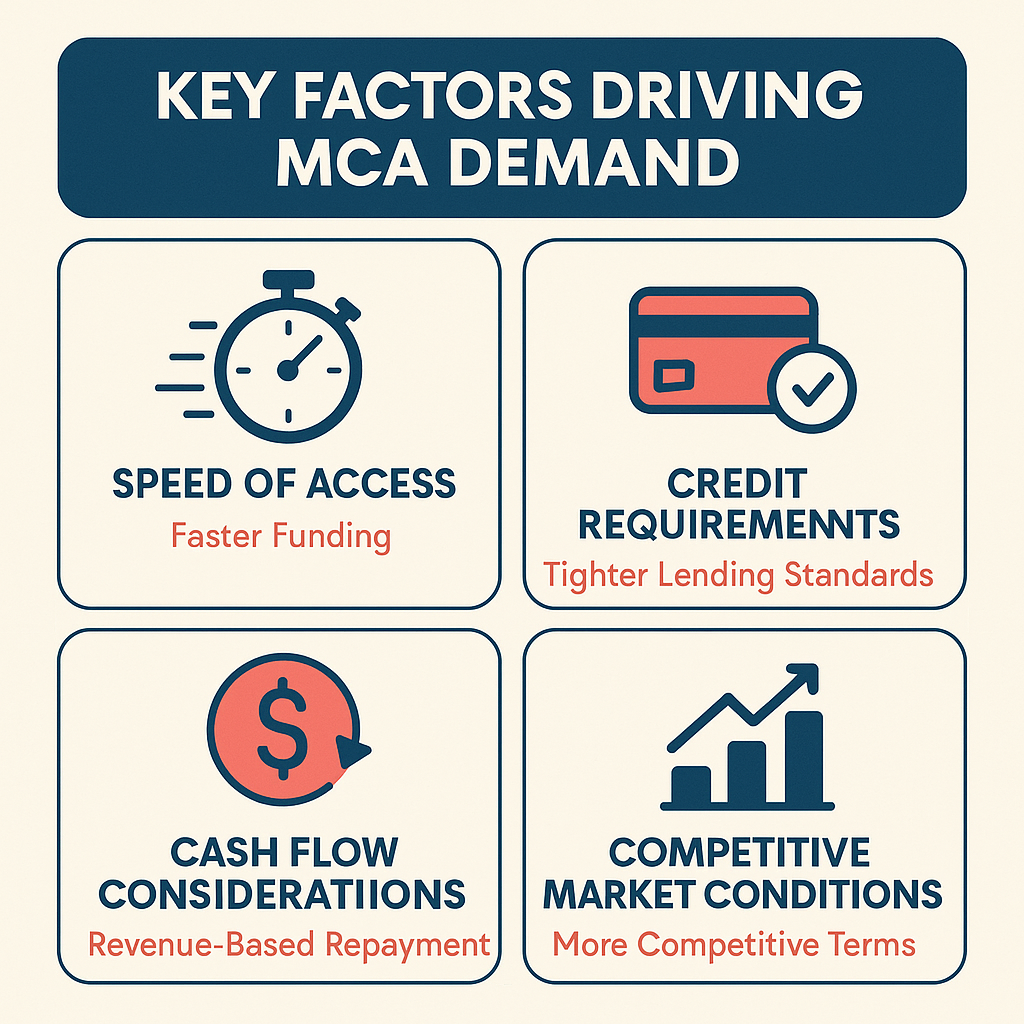Rising interest rates create ripple effects across the small business funding landscape. As traditional financing becomes more expensive, many business owners are reconsidering their funding options and exploring alternatives that might better suit their needs during uncertain economic times.
How Rising Rates Shape MCA Market Dynamics
The impact of rising rates on MCA demand reflects broader shifts in how small businesses approach financing. When traditional bank rates climb, the relative cost difference between conventional funding and merchant cash advances often narrows, making MCAs more attractive to business owners who previously might have pursued bank financing.
Market data suggests the MCA sector continues expanding at a 6.7% compound annual growth rate, indicating sustained demand despite changing economic conditions. This growth trajectory points to increasing acceptance of alternative financing among small and medium enterprises, particularly during periods of economic uncertainty.
Regulatory changes and technological advancements are also reshaping the MCA landscape. These developments could influence application processes, compliance requirements, and overall costs for merchants seeking quick access to working capital.
Key Factors Driving MCA Demand Changes

Several interconnected factors influence how rate fluctuations affect small business funding patterns:
- Speed of Access: MCAs typically offer faster approval and funding compared to traditional financing, which becomes more valuable when businesses need immediate capital during economic volatility.
- Credit Requirements: Rising rates often coincide with tighter lending standards at banks, potentially pushing businesses toward alternative funding sources with different qualification criteria.
- Cash Flow Considerations: The revenue-based repayment structure of MCAs may appeal to businesses experiencing fluctuating income during inflationary cycles.
- Competitive Market Conditions: Growing MCA market size could lead to more competitive terms as providers compete for business in an expanding sector.
Strategic Considerations for Business Owners
Understanding MCA market analysis helps business owners make informed funding decisions during periods of rate fluctuations:
- Timing Flexibility: MCAs may provide working capital when traditional financing timelines don't align with urgent business needs or market opportunities.
- Regulatory Awareness: Staying informed about policy developments and regulatory frameworks helps ensure compliance and potentially better terms.
- Market Position: The expanding MCA market suggests increased credibility and accessibility, which could translate to more robust financial solutions for SMEs.
- Technology Integration: Advancements in MCA technology may streamline application processes and improve the overall funding experience for merchants.
The relationship between rising rates and MCA demand continues evolving as small businesses adapt to changing economic conditions. By understanding these market dynamics and staying informed about regulatory developments, business owners can better position themselves to navigate funding decisions that align with their operational needs and growth objectives.

.png)






